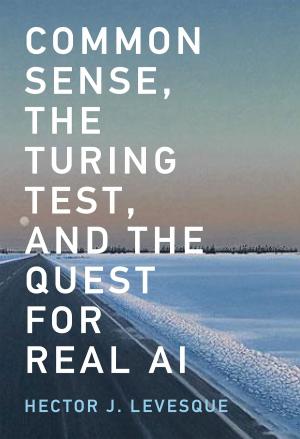Chemicals without Harm
Policies for a Sustainable World
Nonfiction, Science & Nature, Science, Biological Sciences, Environmental Science, Social & Cultural Studies, Political Science, Government, Public Policy, Nature| Author: | Ken Geiser | ISBN: | 9780262327022 |
| Publisher: | The MIT Press | Publication: | June 19, 2015 |
| Imprint: | The MIT Press | Language: | English |
| Author: | Ken Geiser |
| ISBN: | 9780262327022 |
| Publisher: | The MIT Press |
| Publication: | June 19, 2015 |
| Imprint: | The MIT Press |
| Language: | English |
A proposal for a new chemicals strategy: that we work to develop safer alternatives to hazardous chemicals rather than focusing exclusively on controlling them.
Today, there are thousands of synthetic chemicals used to make our clothing, cosmetics, household products, electronic devices, even our children's toys. Many of these chemicals help us live longer and more comfortable lives, but some of these highly useful chemicals are also persistent, toxic, and dangerous to our health and the environment. For fifty years, the conventional approach to hazardous chemicals has focused on regulation, barriers, and protection. In Chemicals without Harm, Ken Geiser proposes a different strategy, based on developing and adopting safer alternatives to hazardous chemicals rather than focusing exclusively on controlling them.
Geiser reviews past government policies focused on controlling chemicals, describes government initiatives outside the United States that have begun to implement a more sustainable chemical policy, and offers an overview of the chemicals industry and market. He develops a safer chemicals policy framework that includes processes for characterizing, classifying, and prioritizing chemicals; generating and using new chemical information; and promoting transitions to safer chemicals.
The shift in strategy described by Geiser will require broad changes in science, the chemicals economy, and government policy. Geiser shows that it is already beginning, identifying an emerging movement of scientists, corporate managers, environmental activists, and government leaders who are fashioning a new, twenty-first-century approach to chemicals.
A proposal for a new chemicals strategy: that we work to develop safer alternatives to hazardous chemicals rather than focusing exclusively on controlling them.
Today, there are thousands of synthetic chemicals used to make our clothing, cosmetics, household products, electronic devices, even our children's toys. Many of these chemicals help us live longer and more comfortable lives, but some of these highly useful chemicals are also persistent, toxic, and dangerous to our health and the environment. For fifty years, the conventional approach to hazardous chemicals has focused on regulation, barriers, and protection. In Chemicals without Harm, Ken Geiser proposes a different strategy, based on developing and adopting safer alternatives to hazardous chemicals rather than focusing exclusively on controlling them.
Geiser reviews past government policies focused on controlling chemicals, describes government initiatives outside the United States that have begun to implement a more sustainable chemical policy, and offers an overview of the chemicals industry and market. He develops a safer chemicals policy framework that includes processes for characterizing, classifying, and prioritizing chemicals; generating and using new chemical information; and promoting transitions to safer chemicals.
The shift in strategy described by Geiser will require broad changes in science, the chemicals economy, and government policy. Geiser shows that it is already beginning, identifying an emerging movement of scientists, corporate managers, environmental activists, and government leaders who are fashioning a new, twenty-first-century approach to chemicals.















